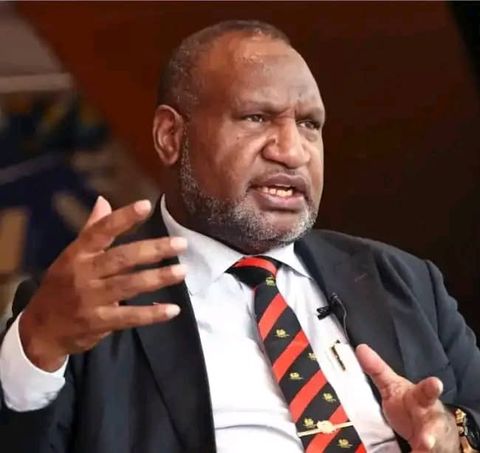Facing the severe effects of climate change, Papua New Guinea is seeking urgent support for the Pacific, as Prime Minister James Marape stressed the need for increased climate funding to aid smaller island nations, including PNG.
In his recent live interview with BBC World News, Marape highlighted how climate change has intensified the challenges for Pacific Island countries, with rising sea levels, extreme weather events, and loss of life.
As Marape explained, PNG and other small Pacific nations face disproportionate impacts from a crisis they did not cause, yet they are not receiving sufficient climate finance to cope.
“We didn’t cause this problem, but our people are paying a high price,” he said, emphasizing PNG’s vulnerability to extreme weather events and related fatalities.
“This year alone, extreme weather events have caused landslides, leaving over 2,000 people dead from just one catastrophe.”
“Heavy rains have cost my country millions of dollars of damage to our roads and bridges that link to our communities,” he added.
Marape described how rising sea levels have already displaced entire communities in PNG, such as those on the Carteret Islands in the Autonomous Region of Bougainville.
The impacts, he noted, are being felt across the region, with small island states like Kiribati and Tuvalu facing similarly dire circumstances.
“The reality of sea levels rising as a result of climate change impacts is not only a PNG experience but also for smaller island nations in the Pacific who have serious issues emanating from this,” he said.
Recognizing the urgent need for financial support, Marape welcomed Australia’s renewed commitment to assisting Pacific nations with climate change adaptation.
“We are working with Australia to access those funds for climate change mitigation,” he said, acknowledging the need for resources to aid in climate resilience.
Marape has outlined specific areas where climate funding could make a difference, such as land reclamation projects, clean energy solutions, and water desalination efforts to assist impacted communities.
“We are pushing for land reclamation, clean energy use, and desalination of water,” he explained.
“I’ve been pushing for these on the global front to assist our neighboring small island nations like Kiribati, Tuvalu, Federated States of Micronesia, and even small islands in PNG like the Mortlock atolls, Carterets, and others.”
At the recent Pacific Islands Forum held in Tonga, Marape reiterated PNG’s commitment to supporting climate adaptation for the region’s most vulnerable communities.
He noted that collective action is needed to protect Pacific islands and ensure that their people can continue to thrive despite the growing climate challenges.
“We are making our stand clear,” Marape said, “concerning the effects of climate change on small Pacific Island nations and how best they can be assisted.”
As PNG strengthens its partnerships and calls for climate funding, Marape hopes that practical solutions can mitigate the impacts of climate change, safeguard communities, and secure the future of small island nations in the Pacific.

